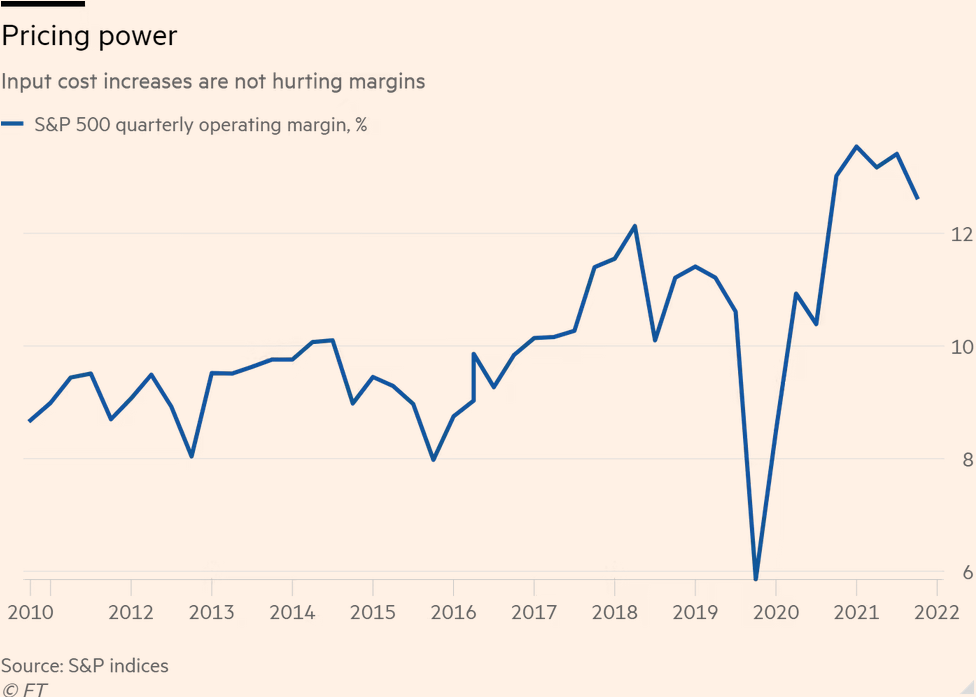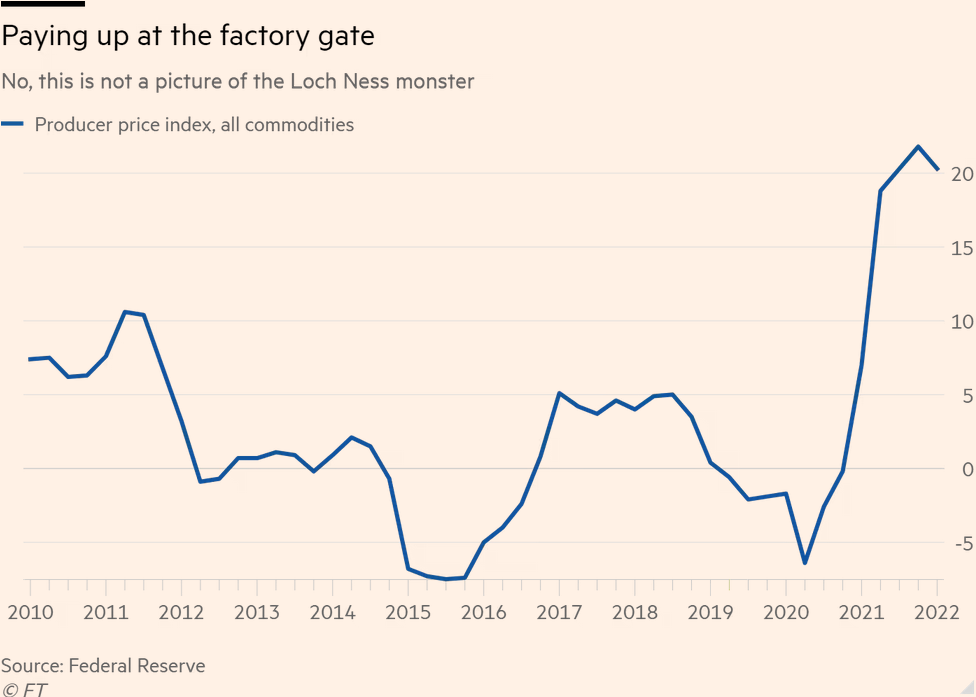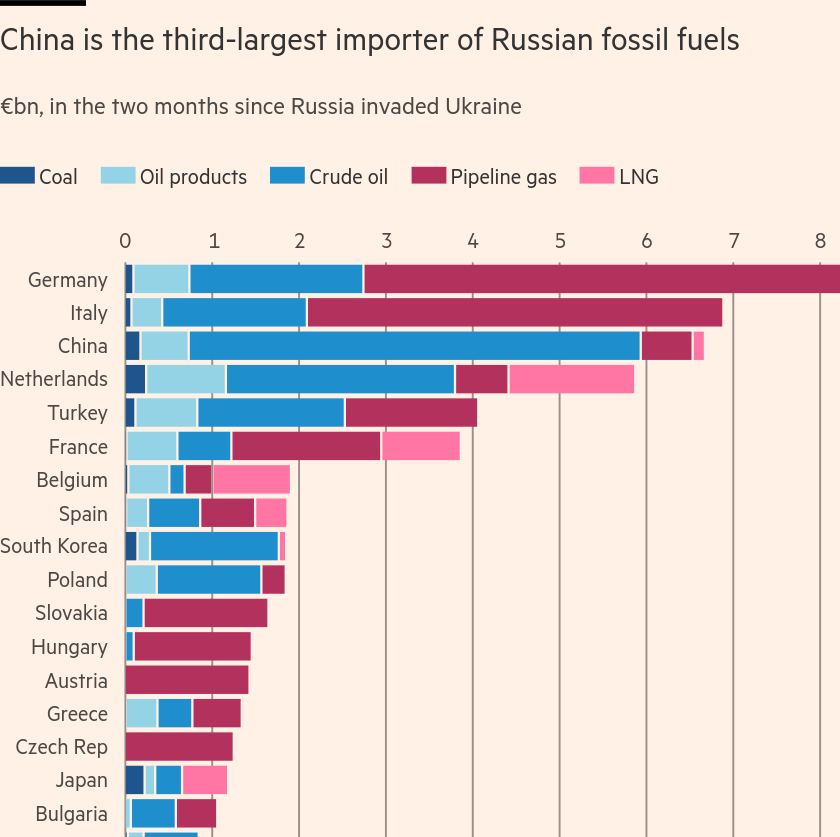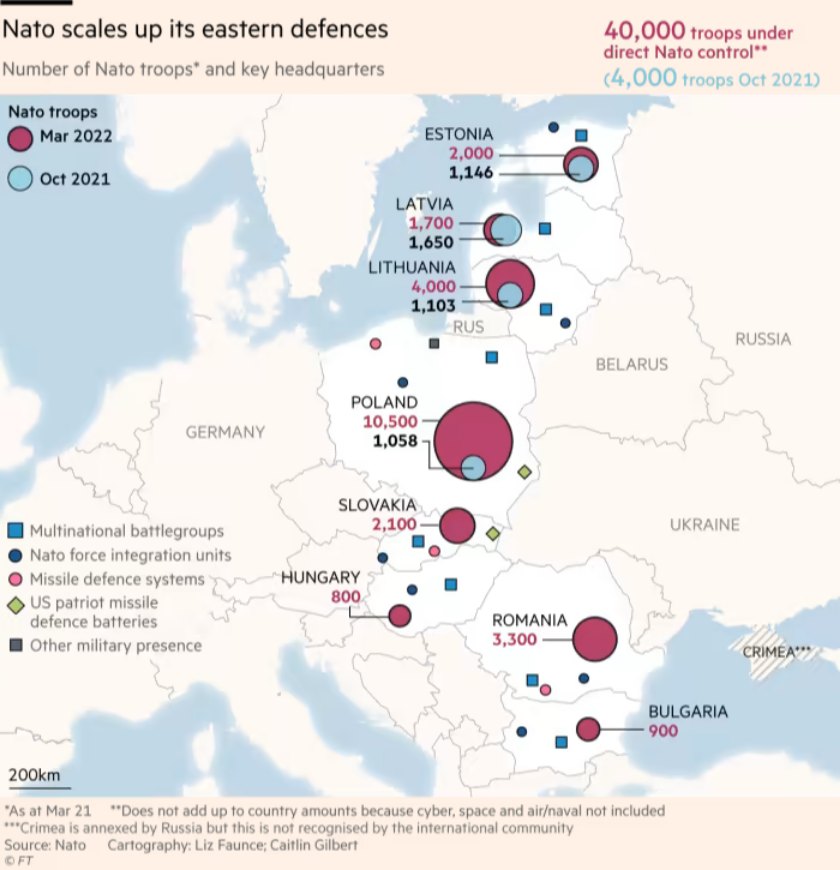May 4, 2022
The profit-price spiral is gearing-up
- Profit margins are being sustained at the highest levels since 2009 even as input costs are going up. This has resulted in the actual prices increase spiral (i.e., workers are not causing it).
- Profits are being sustained because that's the way the system works. Competition has not changed since the rise in inflation, but input costs have gone up for everyone producing. So, prices rise.
- With the USA central bank increasing rates rather fast, high growth industries are being hit as profit margins are squeezed with higher debt costs (just look at the fall in NFT sales).
- Will this drive costs up? You bet. Because it is these industries that have fed the productivity gains in the previous decade and now industry has bought in it is hard to back out. So, lower profit margins, lower new productivity, but higher costs.
- That's part of the (Marxist) cost-increase story, but more importantly it is part of the recession story.


USA Capital worried about abortion ban
- About half of those seeking to end a pregnancy already live below the federal poverty line, with three-quarters struggling to pay for basics like food and housing, according to the Turnaway study
- Five years after being denied an abortion, women are four times as likely to live below the federal poverty line as those who received the procedure.
- Black and Hispanic women are more likely to seek abortion and resources to fund care, and to live in states where abortion will be made illegal, meaning they’re more likely to suffer the economic consequences
- Access to abortion is credited with expanding womens’ roles in economies and labor markets around the world. The ability to access safe abortions is what keeps many American women from falling into poverty, according to decades of research and economist estimates.
- Women represent 57% of the workforce and young women represent more than 57% of college graduates, said Anne Clark Wolff, founder of investment bank Independence Point Advisors.
- “Upending constitutional rights that have been protected for decades will harm all of us – not just women,” she said.
- Capital is upset because it is almost an immediate reduction in labour force participation of women will put upward pressure on wages and reduce net profits of USA companies making them less competitive.
- The impacts on public health systems also costs more on the social system.
- Weirdly aligned interests between the poor and capital for completely different reasons. Not unlike many Democratic Party policies lately.
As EU bans Russian Oil, China is buying it (at a discount, of course)
- Russian oil might be at a discount, but Brent is at $107.58 a barrel making huge profits for oil majors like BP.
- China (and India, but the news forgets to mention them as they are in need of energy to deal with their intense heat situation) has been refining and storing oil and gas at the discount.

- Germany's economy is being directly challenged by the EU's decisions to engage in a economic/resource war with Russia.
- Hungary's economy will also be heavily affected as they are not interested in following the EU ban on oil and gas (as they do not have countries coming to their rescue), but are dependent on cross boarder flows.
- The economic consequences might have been good if the people making the decisions to transition away from Russian oil and gas were not just in the pockets of Western coal, oil and gas. Also, VW has run-out of electric vehicles to sell because of supply chain issues – so, for many the transition away from oil is a fantasy.
A century of war. Inevitable?
- Unfortunately, the Russian war with Ukraine is just the preamble to this century's rise in global conflict.
- Investment in war machines always leads to conflict, in the same way as handing out handguns leads to more murders with hand guns. When the stuff is lying around state leaders will pick them up instead of face their population.
- NATO build-up on the Russian boarder is not going to lead to a safer Europe/World.
At the fall of the Berlin Wall, the US had 200,000 troops in West Germany.
Today, Nato’s eastern flank states, from the Baltics in the north, down to Bulgaria on the Black Sea, currently boast about 330,000 troops: national armies bolstered by reinforcements from western Europe, the US and Canada. In addition to land forces, as many as 130 Nato aircraft are on high alert, and about 150 warships patrol the seas.
Nato’s eastern flank is 1,100km closer to the Kremlin than the West German border in 1989.
Russia’s western military district, which covers territories bordering Finland, the Baltics, Belarus and Ukraine, plus the exclave of Kaliningrad, boasts the country’s largest and best-equipped armed forces. More than 300,000 troops provide the full spectrum of warfare, from tank divisions, special forces and ground-based missile launchers, alongside naval and air force bases.

4.5mn USA workers quit the labour force in March
- Wages are not keeping up with cost pressures and the best way to get a higher paying job (under a free-market economy) is to quit yours and go work somewhere else.
- Job openings hit a high of 11.5mn. Lots of individualized bargaining power.
- Unfortunately, it is likely to create a problem for workers in the medium term.
- The better solution is to form a union and take a stand of higher wages for longer… if only unions were interested in organizing workplaces.
India coal
- India is going to burn more coal to deal with the heat wave caused by burning lots of coal.
- Unlike in the fantasy land of "The Ministry of the Future", India gives a view to the world responding the effects of climate change where we just make things worse.
India is the world’s second-largest coal producer and consumer and depends on the fossil fuel for about 70 per cent of power generation.
- Last week, an official in New Delhi said the megacity had only days’ worth of coal supply left.
- Gas and oil imports from Russia will fill this hole, but so will renewed coal mining.
- The reality is that many other places will be facing similar disruptions to their energy, food, and production processes in the near future. The species is not doing the right things in response.